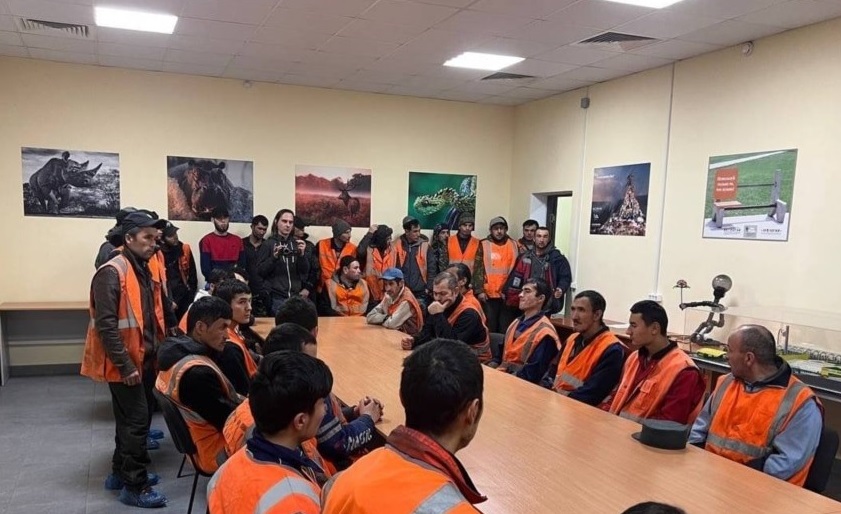The 'new' Mirziyoyev and Uzbekistan's old problems
In perfect Soviet style, by amending the Constitution, the president has rescinded his two previous terms and now - re-elected in an almost plebiscite-like manner - will be able to remain at the helm of the country until 2037. The only real change is his attitude towards Uzbeks who have emigrated abroad for work, no longer despised. He now calls them the 'new heroes', but prefers to see them in London rather than Moscow.
Tashkent (AsiaNews) - The president of Uzbekistan, Šavkat Mirziyoyev, was solemnly sworn in at the inauguration of his new term of office, which he won by an almost plebiscite consensus in early elections on 10 July.
As a result of the constitutional changes, his two previous terms have been reset, and he will now be able to remain at the helm of the country until 2037, surpassing 20 years as president (he was first elected in 2016) and reaching the age of 80, having been born in 1957.
The new constitution is an instrument for redefining power, which must correspond to the programmes of the leader in office, and in this it is fully a Soviet legacy. One recalls the constitutions of Stalin, Khruščev and Brežnev, which also distinguish the political line of the periods of the Party secretaries.
It was Russian President Vladimir Putin who resumed the habit in 2020, inserting into the new Basic Law (instead of Yeltsyn's) the principles for which Russia is committed in the war against Ukraine and the world, in defence of 'traditional values'. Putin's zeroing in should project him until 2032, but much will depend on the outcome of military operations.
The second example Mirziyoyev took inspiration from, much closer in sensibility and aims, is that of Kazakhstan's President Kasym-Žomart Tokaev, who was also re-elected this year after various turbulent times from January 2022, before Putin's war.
The aims of Tokaev, who himself reformed the constitution, but did not need 'resetting' as he has only been in power for a short time, are to extensively reform the country, to get rid of the caste linked to his predecessor Nursultan Nazarbaev, and to lead Kazakhstan 'towards justice and democracy'.
There is no particular need for democracy in Uzbekistan, given the autocratic habits perpetuated in the thirty-year post-Soviet period. Turmoil is not lacking even in the most populous Central Asian state (more than 35 million inhabitants, compared to Kazakhstan's 20), but it mainly concerns the mountainous areas of Karakalpakstan, easily tamed by the Uzbek army, and left in the limbo of a cosmetic autonomy. Mirziyoyev, on the other hand, insists on the need for the economic development of Uzbek society, but he is faced with old problems, which have so far been only minimally resolved.
This time, however, the president does not offer work at home, but offers full reimbursement for tickets and work visas to go to more developed countries than Russia, perhaps to England, where Uzbek migrants are welcomed with increasing benevolence. Uzbekistan's great economic development is slow to take off, and Mirziyoyev's 'eternal presidency' slowly settles into the traditional rhythms of exploiting external alliances, waiting to see how the ongoing conflicts will turn out.
11/08/2017 20:05
27/10/2021 09:58
01/12/2023 10:09
03/11/2021 12:00







.png)










